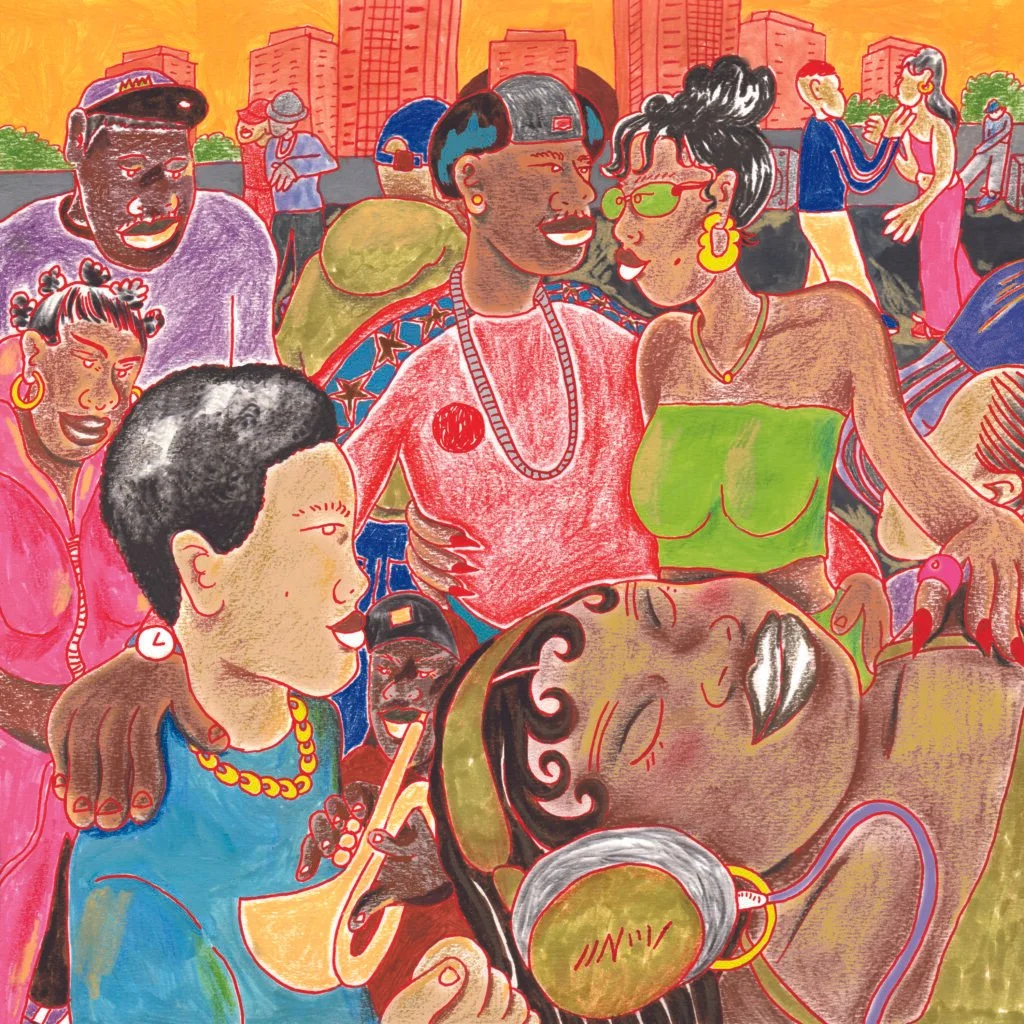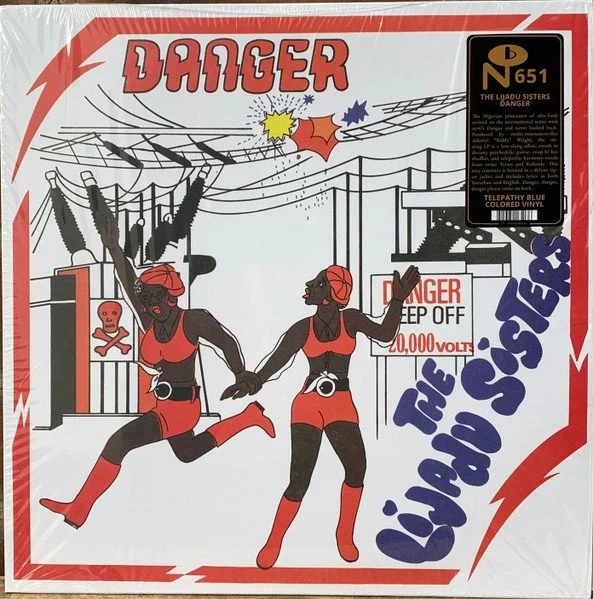New music - 21.07.25
Fresh from the Turntable: This Week's Sonic Journeys
Greetings, fellow music travelers. As the seasons turn, so do the records on my platter, each rotation bringing new worlds of sound into our lives. This week, I've had the privilege of immersing myself in four remarkable albums that span continents, genres, and emotional landscapes. From the vibrant Afro-jazz explorations of Kokoroko to the introspective wordplay of Open Mike Eagle, from the rediscovered Nigerian gems of The Lijadu Sisters to the transformative poetry of Kae Tempest – these records have provided the soundtrack to my contemplative evenings and spirited mornings alike.
What ties these diverse works together isn't merely their excellence, but their ability to transport us beyond the mundane. Each offers a distinct perspective, a unique voice that contributes something essential to our collective musical conversation. Let's explore these sonic territories together, shall we?
Kokoroko - "Tuff Times Never Last": Jazz as Communal Celebration
LABEL: Brownswood Recordings GENRE: Jazz
The London-based ensemble Kokoroko has always defied simple categorization, and their latest offering "Tuff Times Never Last" continues this tradition with sublime confidence. This record serves as a natural evolution from their self-titled EP that captured our hearts in 2019 and their debut album "Could We Be More" from three years ago. What's immediately apparent is the heightened tenderness in their approach, yet this newfound gentleness never diminishes their capacity for celebration and experimentation.
The album opens with the irresistible "Sweetie," a composition that demonstrates their masterful balance of complexity and accessibility. When that line "Sweetie makes my heartbeat bounce" emerges, carried aloft by their impeccable horn section, one feels an almost physical elevation. This is music that speaks directly to the body while engaging the mind – no small feat in any genre.
Throughout the record, Kokoroko weaves strands of West African highlife, American jazz traditions, UK dance culture, and soul music into a tapestry that feels both timeless and thoroughly contemporary. Tracks like "Summer Daze" shimmer with the warmth of remembered joy, while "Golden Land" showcases their ability to build gradually toward moments of transcendent release.
Having had the good fortune to witness Kokoroko perform live on several occasions, I can attest that they are indeed "one of the best live bands" currently active. Their studio recordings capture much of this energy, but the true magic happens in those rooms where their sound can expand and contract in response to the audience's energy.
Where to buy: https://kokoroko.bandcamp.com/
If Kokoroko's blend of jazz, funk, and Afrobeat speaks to you, consider exploring these kindred spirits: The Heliocentrics' "Infinity of Now," Nubiyan Twist's "Freedom Fables," and the pioneering work of Fela Kuti, particularly "Expensive Shit."
Open Mike Eagle - "Neighborhood Gods Unlimited": Hip-Hop as Poetic Excavation
LABEL: Auto Reverse Records GENRE: Hip Hop
Chicago-born, Los Angeles-based Open Mike Eagle has long occupied a unique position in hip-hop's landscape – a thoughtful wordsmith whose keen observations on life, society, and the self are delivered with disarming candor and wit. "Neighborhood Gods Unlimited" continues his tradition of intellectual engagement without sacrificing emotional resonance.
The album's title itself offers a fascinating lens through which to view Eagle's work. There's something both grand and humble about positioning neighborhood figures as gods – a recognition of how our immediate surroundings and the characters who populate them shape our understanding of the world. Throughout the record, Eagle excavates memories, examines present realities, and contemplates possible futures with equal parts precision and compassion.
His delivery remains as distinctive as ever – conversational yet rhythmically complex, allowing the listener to catch every carefully chosen word. This clarity of expression serves his intricate narratives well, as Eagle often builds his songs around extended metaphors and conceptual frameworks that reward close attention.
What separates Eagle from many of his contemporaries is his willingness to expose vulnerability without resorting to melodrama. There's a matter-of-factness to even his most revealing moments that feels refreshingly honest in an age of performative emotion. The production throughout complements this approach, providing textured backdrops that enhance rather than distract from his lyrical explorations.
To add "Neighborhood Gods Unlimited" to your collection, visit: https://openmikeeagle.bandcamp.com/
For those who appreciate Open Mike Eagle's thoughtful approach to hip-hop, I recommend exploring the catalogs of billy woods (particularly "Aethiopes"), Quelle Chris (especially "Innocent Country 2"), and the earlier works of Busdriver.
The Lijadu Sisters - "Danger": Nigerian Funk as Political Commentary
LABEL: Numero Group GENRE: Reggae, Afrobeat
Some records feel as though they've been waiting patiently for us to discover them at precisely the right moment in our lives. The reissue of The Lijadu Sisters' 1976 album "Danger" arrives like a message in a bottle, carrying the sounds and sentiments of mid-70s Nigeria to our present shores with remarkable clarity and relevance.
Taiwo and Kehinde Lijadu, identical twin sisters who passed away in recent years, crafted music that married incisive political commentary with irresistible grooves – what The Quietus aptly describes as "sunshine cynicism." This apparent contradiction – joyful music carrying serious messages – represents one of music's most powerful capacities: to make difficult truths not just palatable but impossible to ignore.
The album's title track "Danger" warns of societal collapse with a directness that feels startlingly current. "The world is full of danger, danger everywhere," they sing, their voices moving in and out of unison and harmony with practiced ease. Yet the musical backdrop – propulsive percussion, sinuous guitar lines, and warm organ tones – creates a space for dance even as the lyrics invite reflection.
Throughout the record, the sisters address corruption, inequality, and social dysfunction with unflinching clarity. Songs like "Life's Gone Down Low" combine infectious hooks with penetrating observations about life under oppressive conditions. Their vocal delivery – often trading lines or singing in close harmony – reinforces the sense of solidarity that underpins their political message.
You can purchase this important reissue from: https://www.juno.co.uk/products/the-lijadu-sisters-danger/936599-01/
If The Lijadu Sisters' blend of funk, Afrobeat and social commentary resonates with you, explore these complementary works: Ebo Taylor's "Life Stories," William Onyeabor's "Atomic Bomb," and Miriam Makeba's "Pata Pata."
Kae Tempest - "Self Titled": Spoken Word as Personal Revolution
LABEL: Island Records GENRE: Hip Hop
Few artists create work that feels as urgently necessary as Kae Tempest. Their fifth album, appropriately "Self Titled," represents a profound artistic statement about identity, self-discovery, and the courage required to live authentically. Having publicly come out as non-binary in 2020, Tempest brings this journey of personal understanding to their art with characteristic eloquence and emotional honesty.
The album balances moments of vulnerability with declarations of hard-won strength. NME describes it as "beefy" and "self-assured" – apt descriptions for work that feels both substantial and confident. Tempest's delivery remains a marvel of precision and passion, their voice navigating complex rhythmic patterns while maintaining the natural cadences of human speech.
Musically, "Self Titled" continues Tempest's collaboration with producer Dan Carey, whose atmospheric electronic soundscapes provide the perfect foundation for their words. The production throughout strikes a delicate balance – present enough to create emotional texture, restrained enough to keep the focus on Tempest's linguistic virtuosity.
What makes Tempest's work so compelling is their ability to connect personal experience to broader social observations. Even as they explore deeply individual questions of identity, they illuminate how these questions relate to our collective struggles for authenticity and connection in a world that often seems designed to prevent both.
The album's emotional journey concludes with moments of hard-earned peace – not a simplistic happy ending, but a realistic portrayal of what it means to move toward self-acceptance in a complex world. It's a testament to Tempest's artistic integrity that they can address such weighty themes without resorting to platitudes or oversimplification.
To add "Self Titled" to your collection, visit: https://kaetempest.bandcamp.com/
For those moved by Kae Tempest's blend of poetry and music, consider exploring the work of Saul Williams (particularly "Volcanic Sunlight"), Kate Tempest's earlier albums like "Let Them Eat Chaos," and the spoken word jazz of Gil Scott-Heron, especially "Pieces of a Man."
Check out the FAB 50 playlist on Spotify for all of my recent discoveries!




